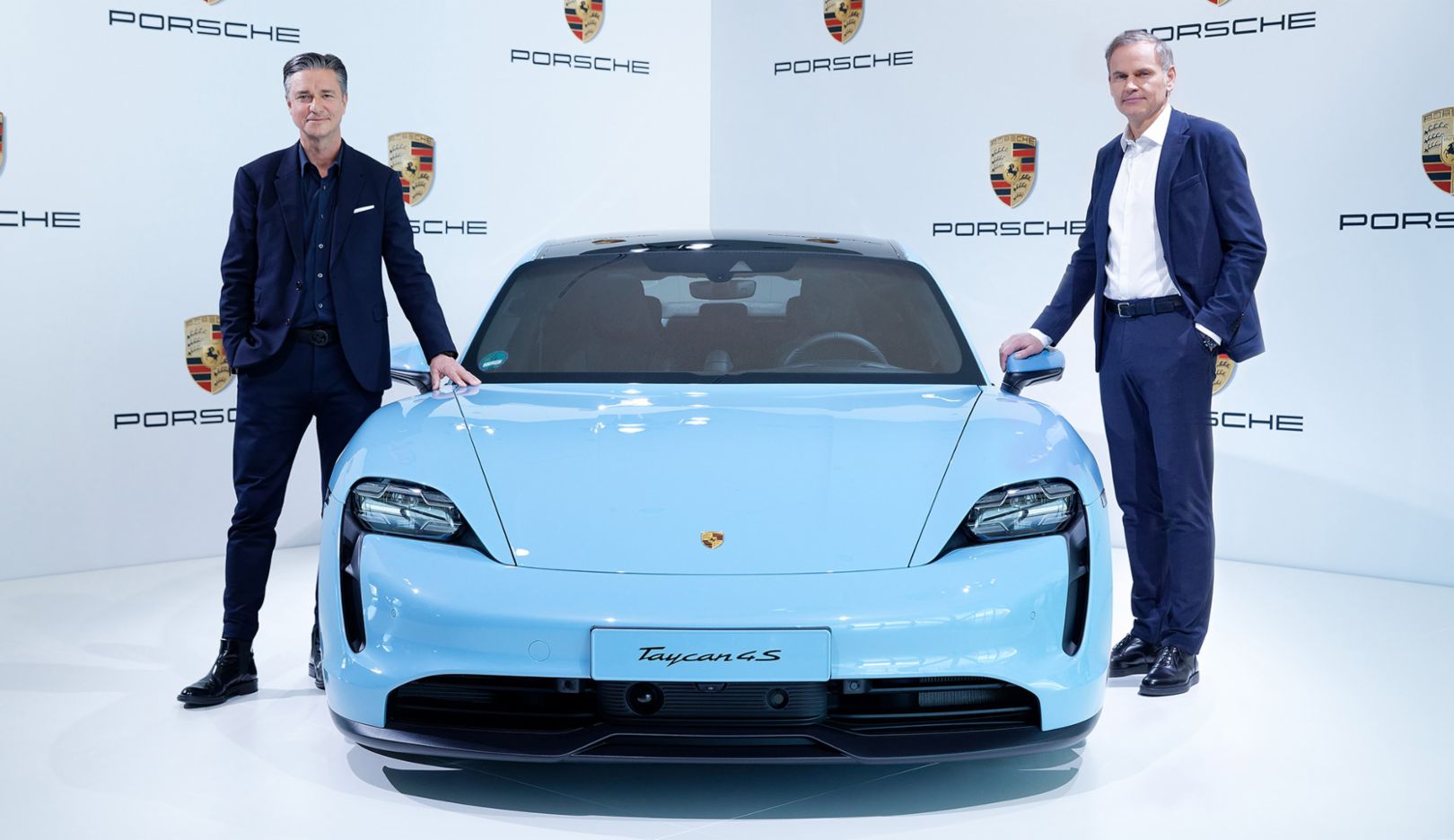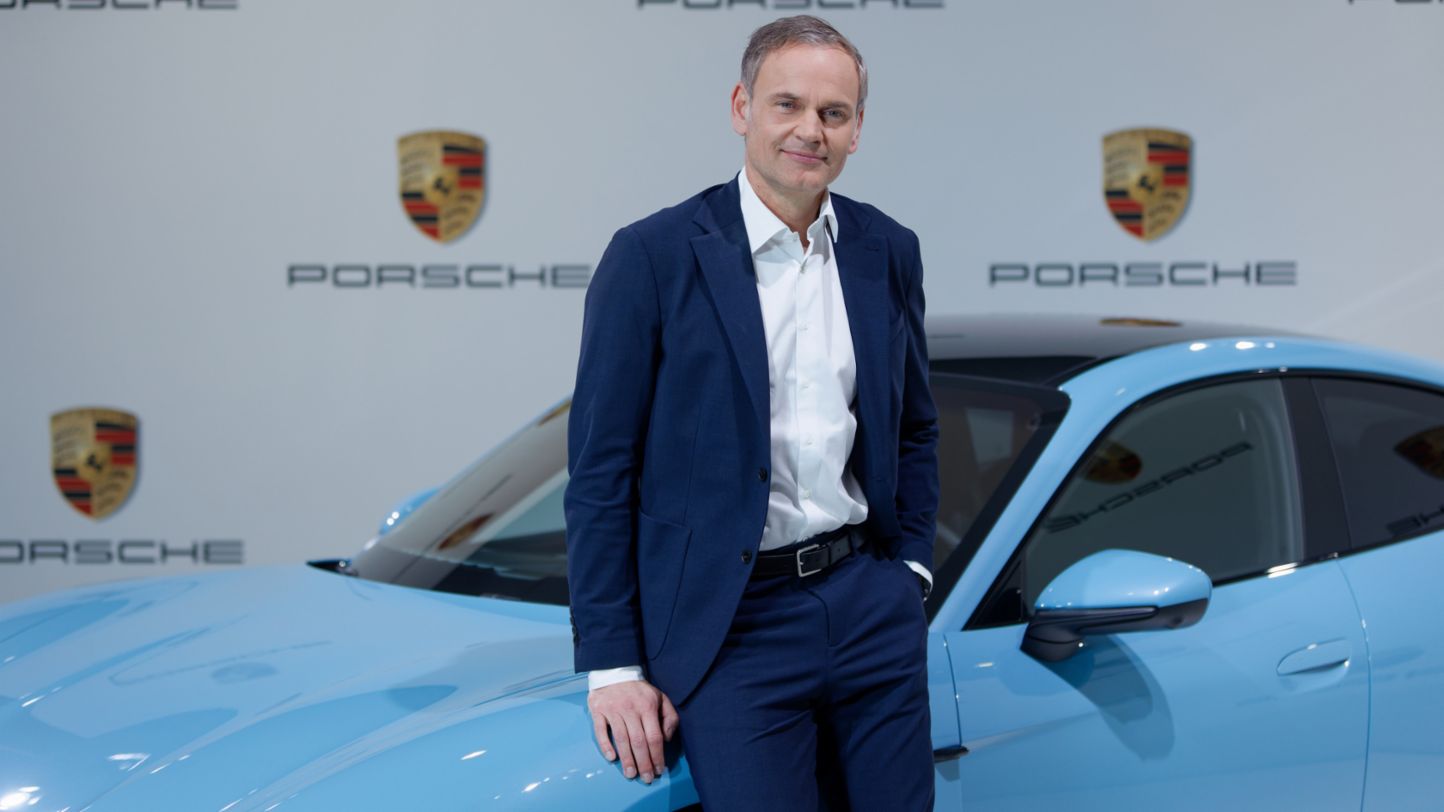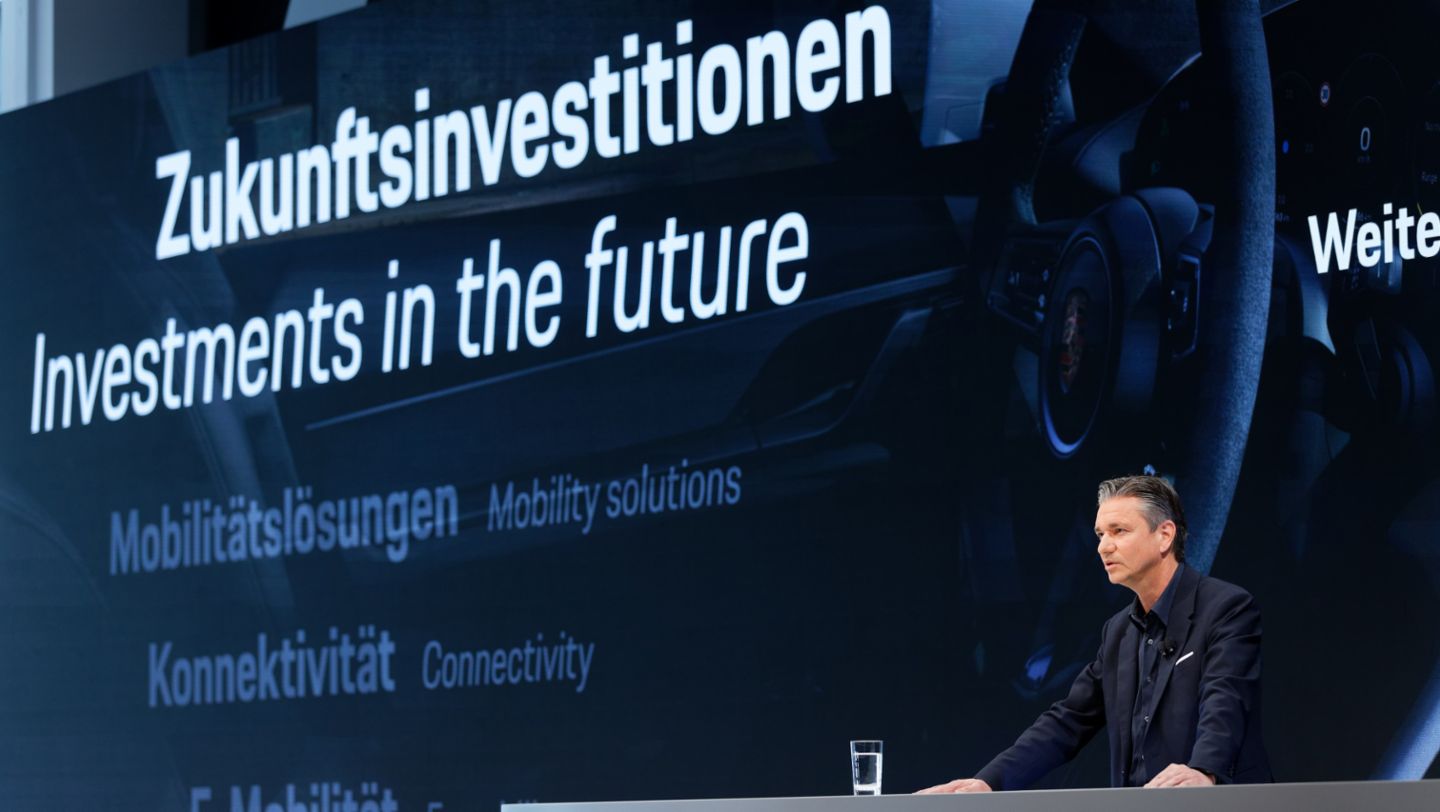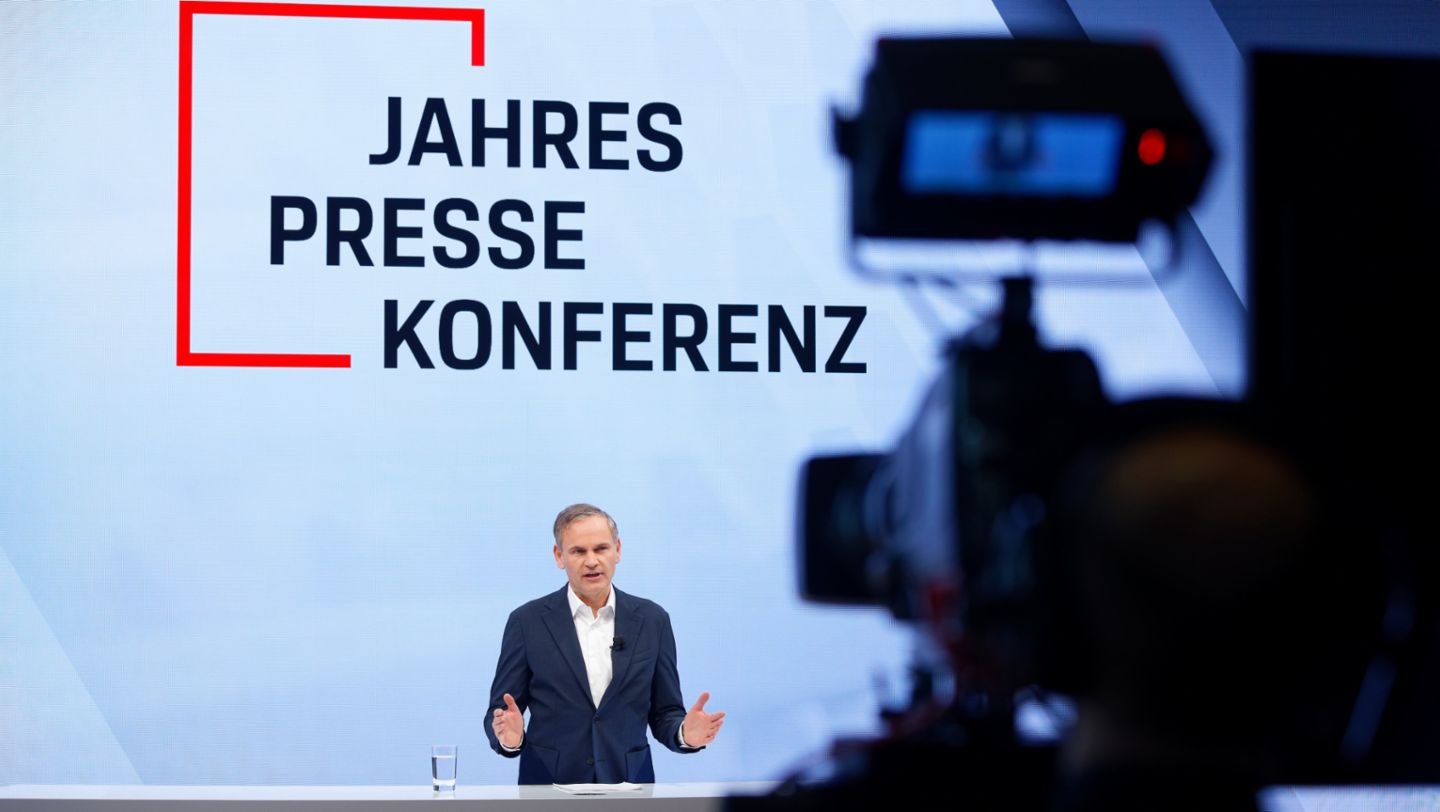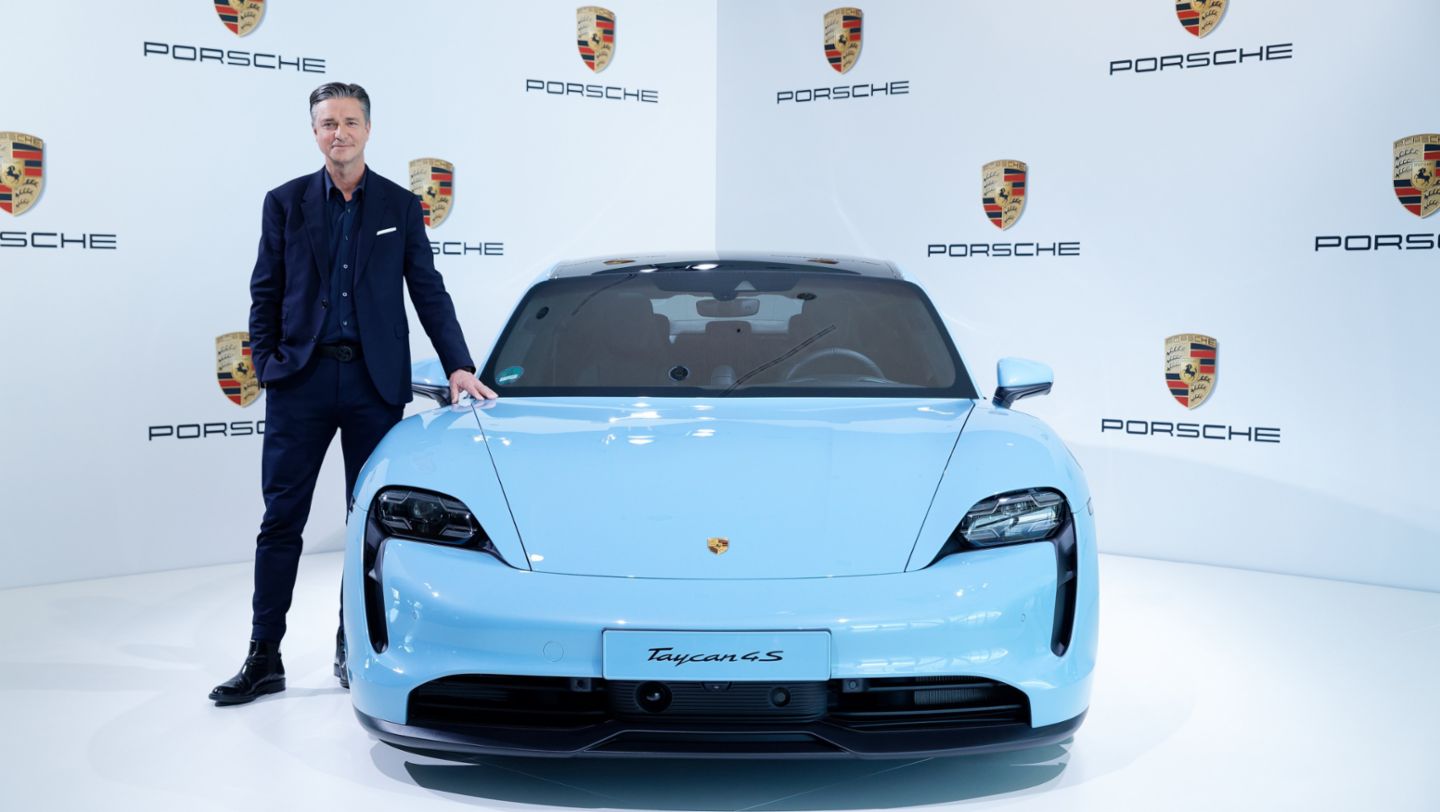Sales revenue rose by eleven percent to €28.5 billion, while the operating result before special items increased by three percent year-on-year to €4.4 billion. The return on sales before special items was 15.4%. In the same period, the workforce grew by ten percent to 35,429 employees.
“As a pioneer for sustainable mobility Porsche has implemented important measures in recent years. 2019 saw the introduction of many emotive new products. Among other things, we launched the Taycan, our first all-electric sports car,” says Oliver Blume, Chairman of the Executive Board of Porsche AG.
“Thanks to our attractive product range, consisting of efficient petrol-driven cars, high-performance plug-in hybrids and now also purely electric sports cars, our deliveries once again increased in the 2019 financial year.”
However, the success of the past year is far more than just a snapshot according to Blume.
“Our primary goal is value-creating growth," said Oliver Blume.
"We have increased our result by more than 60 percent over the past five years. This allows us to create the prerequisites to fully meet our entrepreneurial responsibilities in economic, ecological and social areas.”
“In 2019 we achieved new record values in terms of sales revenue and profits before special items," said Lutz Meschke, Deputy Chairman of the Executive Board and Member of the Executive Board for Finance and IT at Porsche AG.
"The increase in profits is due particularly to the strong increase in volumes as well as the positive development of our other business fields and divisions. At the same time, higher fixed costs, caused by our growth, significant investments in electrification and digitalisation, and currency effects had a negative impact on the result.
“We nevertheless again exceeded our strategic targets with a return on sales of 15.4 percent before special items and a return on investment of 21.2 percent.”
The diesel issue resulted in special items amounting to €0.5 billion in the second quarter of 2019. The operating result of Porsche AG in the 2019 financial year after special items was therefore €3.86 billion and the return on sales after special items was 13.5 percent.
Strongest growth in Germany and Europe
The Cayenne and Macan models series in particular were responsible for a significant increase in deliveries: 92,055 Cayenne vehicles and thus 29 percent more than in the previous year were handed over to customers. A total of 99,944 Macan vehicles were delivered to customers – amounting to an increase of 16 percent compared with 2018.
In the company's home market and in the entire European market, Porsche generated the strongest growth in 2019 with a plus of 15 percent in each case. 31,618 vehicles were delivered in Germany and 88,975 vehicles in total throughout Europe.
The sports car manufacturer also recorded an increase in its two largest markets. In China, 86,752 vehicles were handed over to customers, amounting an increase of eight percent compared with 2018. In the USA, Porsche also grew the figure for its delivered vehicles by eight percent to 61,568 vehicles. Consequently, the sports car manufacturer was able to defy the overall weakening economic situation in both these markets.
Consistently sustainable
Electromobility is a job creator at Porsche: around 2,000 new jobs were created for the Taycan and the company launched a comprehensive qualification campaign. Production of the electric sports car at the parent plant in Zuffenhausen is carbon-neutral. Since the beginning of 2020 Porsche has converted the site’s entire energy supply to carbon-neutral sources: new buildings are energy-efficient and the electricity is from renewable sources. The company generates heat in its own CHP plants, which are operated with biogas produced from residual materials and waste.
High investments
By 2024, the sports car manufacturer will invest around €10 billion in the hybridisation, electrification and digitalisation of its cars, and is consistently enhancing its offering in the area of electromobility: the next model to be launched will be the first Taycan derivative, the Cross Turismo.
The new generation of the Macan compact SUV will also be electrically powered, and it will thus be Porsche’s second battery electric vehicle. The company is anticipating that by the middle of this decade half of the entire product range will be sold as fully electric models or partially electric plug-in hybrids.
“We had already received around 30,000 serious purchase enquiries for the Taycan before our world premiere in September,” said Blume.
“More than 15,000 customers have now signed their purchase contract. We are confident that we will also be able to generate a high demand in 2020 as a result of the attractiveness of the Taycan and our 911, 718 and Cayenne derivatives.”
Despite very high investment in the electrification of the product range, digitalisation, and the expansion and renewal of company sites, the company aims to continue to meet its high earnings target.
“Over the coming months we are facing an economically and politically challenging environment, not least in light of the uncertainty relating to the coronavirus,” said CFO Meschke.
“With measures that will boost efficiency and by developing new, profitable business fields, we aim to continue to achieve our strategic goal of a return on sales of 15 percent.”
